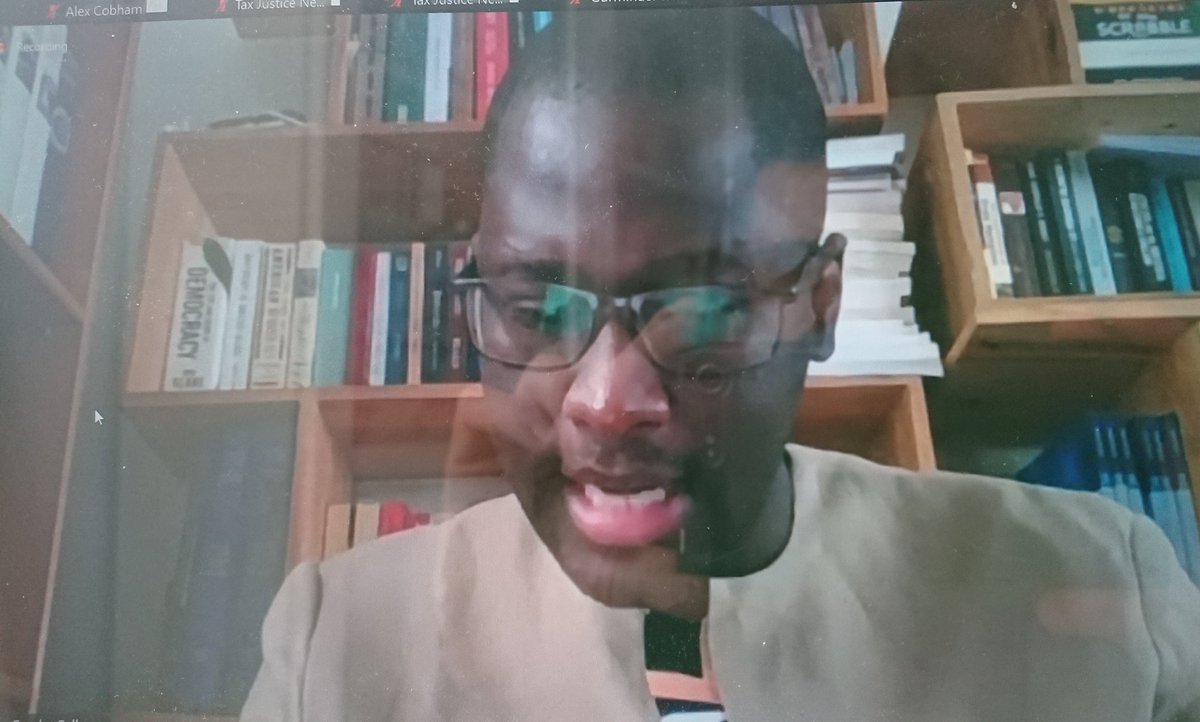
We're now starting the first panel of our #ImperialInequalities conference, with @JuliaMcClure_ examining the role of 'welfare imperialism' in the Spanish empire.
>150 people viewing live, join them below!
>150 people viewing live, join them below!
https://twitter.com/TaxJusticeNet/status/1334483926702764034
Here's the full first panel #ImperialInequalities, with @JuliaMcClure_ (U. Glasgow) David Brown (Trinity) @madeline_woker (Brown U.) & Laura Channing (Cambridge) and moderated by @GKBhambra 



At #ImperialInequalities, @JuliaMcClure_ highlights how ideas of 'charity' and 'welfare' were central to justifications for empire; and also created opportunities for private individuals to capture benefits, including through the abuse of charitable foundations to hold wealth
David Brown @tcddublin now addresses 'Britain's first colony' - Ireland. English investors gambled with new mortgage instruments on the value of land, while tax farming saw aggressive extraction of revenues. Both required unprecedentedly detailed maps
#ImperialInequalities

#ImperialInequalities


Now at #ImperialInequalities, @madeline_woker presents on the 'cheapness' of empire - and how, in the French case in particular, the racialised fiscal hierarchy led to the transfer of the tax burden to the colonies, to protect the 'metropolitan taxpayer' 



Now Laura Channing is laying out the range of colonial governments in Sierra Leone, which saw a variety of taxation and welfare provision - this 'subcolony' level reveals patterns (including less progressive ones) than the more common colony-level view #ImperialInequalities
We're now in the Q&A of the first panel #ImperialInequalities. Have to say, the quality of the questions - and by extension, the audience and their engagement - is just brilliant!
About to take a quick break at #ImperialInequalities, after a fascinating Q&A session - so much to think about. The conference link will stay live, so stay with/join us and in 15 minutes we'll be into the 2nd panel, moderated by @JuliaMcClure_ and then @vanessahistory's keynote! 

Just a reminder - you can still register and join #ImperialInequalities here, including for tomorrow's session
https://twitter.com/TaxJusticeNet/status/1334483926702764034?s=20
Here's the second panel #ImperialInequalities, with Mia Rodríguez-Salgado getting things underway with a paper on the ‘Economic and Spiritual Capital: The Contributions of Early-Modern Galician Emigrants to America’ 

'Scotland is a byword for poverty in the early modern period', says Andrew McKillop @UofGlasgow (making a link to the previous paper on Galicia), while empire (through the Act of Union) can be both a response to, and a factor in exacerbating, poverty
Andrew McKillop goes on to lay out a series of 'charitable' donations, using the extracted loot of empire to build public infrastructure such as schools and hospitals across Scotland - and with it, the credentials of virtuous empire. #ImperialInequalities
The next paper continues these themes: ‘Imperial hospital? The Hospital de los Naturales of Potosí and the Mediation of Charitable Transactions (16th -17th c.)’, presented by Camille Sallé (EUI) - including a new tax, medio peso, used to support #ImperialInequalities
If you're enjoying #ImperialInequalities, and keen to think about current policy applications, here's a couple of upcoming events. First, an @icrict/@TaxJusticeUK event on wealth taxes and a global asset registry, 14 December:
https://twitter.com/Hamza_M_Ali/status/1334520551168233475?s=20
Next week, on 10-11 December, it's our tax justice and climate crisis conference: How to pay for the climate transition taxjustice.net/events/online-…
And of course many of tomorrow's sessions (including mine!) at #ImperialInequalities are focused on policy implications for today, including reparations - the full programme is here taxjustice.net/wp-content/upl…
Next #ImperialInequalities paper is from Yvonne Tan (Goethe U), on ‘Collaboration, Coercion and Counteraction: British Centralisation Policy and 19th Century Tax Revolts in Malaya’ - slide shows the power of land tax(!) 

Into the Q&A for the second #ImperialInequalities panel now, and again some cracking questions being raised - a range of contributions now around the competing/complementary justifications given for empire, e.g. civilising mission, charity abroad, welfare at home...
And finally for today, we move to the first #ImperialInequalities keynote. Our chair and founder @jechristensen56 is now introducing Dr Vanessa Ogle @vanessahistory, who will speak on 'Decolonisation is also a movement of money' 

John - formerly economic advisor to UK Crown Dependency of Jersey -recalls a growing offshore financial services sector and (post-)imperial elite, and the regressive political views that came with them. Dr Ogle's research addresses this process writ large... #ImperialInequalities 

The keynote draws on a forthcoming book, and on this new paper from @vanessahistory, on the emergence of 'tax havens' from the end of formal empire... #ImperialInequalities 



• • •
Missing some Tweet in this thread? You can try to
force a refresh




